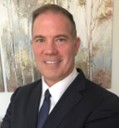with Rolling Wave Planning Characteristics
FEATURED PAPER
By Dr. Steve Ford, Dr. Jay C. Hanan, and Kelly Benson, PMP
Colorado, USA
This article aims to share a novel approach to determining which tasks are on-track, falling behind, or ahead of schedule in a project characterized, at least in part, by rolling wave planning cycles. We noticed there are few metrics methodologies applicable to projects operating in a highly entrepreneurial environment that typically does not use many of the traditional controls found in the project management literature. Whether predominantly predictive or adaptive by nature, projects in a more ambiguous and uncertain environment can lack reporting transparency and comprehensive insight for key stakeholders. Partly in response to this dynamic, we developed an approach for an “Early Warning System,” which we present in this article.
Rolling Wave
Rolling wave planning is an adaptive project planning model that reflects the reality of many projects- that the project management team may not entirely understand the discrete scope, schedule, cost, risk, and quality requirements across the entirety of the project’s life cycle. The Project Management Institute (2021) defines rolling wave planning as “an iterative planning method in which the work to be accomplished in the near term is planned in detail, while the work in the future is planned at a higher level.” This definition is widely echoed by leading theorists in project management academia (Kerzner, 2022; Kloppenborg et al., 2019).
Rolling wave planning can apply to predictive or adaptive life cycles and is not mutually exclusive (PMI, 2021). A construction project may be largely predictive yet still have aspects of rolling wave planning. Consider the case of a custom home build in which the customer knows they want a prominent pool feature but are unsure of exactly what specifications they desire. In this case, the contractor might very well begin work (with an allowance for scope, schedule, budget, risk, and quality), knowing that details will emerge in the following months.
The Agile construct is arguably the most extreme version of rolling wave planning. In the Agile world, product owners and scrum masters break phases into timeframes as short as 2-4 week iterations, known as “sprints” (PMI, 2021; Kerzner, 2022; Kloppenborg et al., 2019). However, not all projects have such tight planning and iteration windows. In a recent chemical research company project, iterations were as long as a year. Iterations of multiple years are not uncommon, mainly when the projects are lengthy and complex (PMI, 2017).
Rolling wave planning reflects a general uncertainty (risk) in long-term estimates related to scope, schedule, cost, risk, and quality. In risk analysis terminology, the team faces an environment where the best available long-term estimates for scope, schedule, and cost include order-of-magnitude placeholders (high uncertainty, high risk). This dynamic results in imprecise risk probability and impact values and a significant probability for unknown unknowns (black swan events). It is important to note that risks can be positive (opportunities) or negative (threats). Typical risk responses include avoiding, transferring, mitigating, accepting, researching, exploiting, sharing, or enhancing the identified risk (PMI, 2017). However, in an ambiguous environment, such proactive actions may prove difficult. In such an environment, making appropriate and prudent decisions regarding how the project should proceed long-term may prove difficult.
More…
To read entire paper, click here
How to cite this paper: Ford, S., Hanan, J., and Benson, K. (2023). An Early Warning System for Projects with Rolling Wave Planning Characteristics, PM World Journal, Vol. XII, Issue VI, June. Available online at https://pmworldlibrary.net/wp-content/uploads/2023/05/pmwj130-Jun2023-Ford-Hanan-Benson-Rolling-Wave-Early-Warning-System.pdf
About the Authors

Dr. Steve Ford
Colorado, USA
![]()
Steve Ford holds a BS from the US Air Force Academy (2004), an MS in Space Studies from the University of North Dakota (2009), and a Doctorate of Management – Project Management from Colorado Technical University (2021). Steve is currently the President and CEO of Advanced Applied Project Management Solutions, Inc, a project management and risk consulting firm. He holds numerous project management-related qualifications, including Project Management Professional (PMP), Risk Management Professional (PMI-RMP), Lean Six Sigma Black Belt Professional, Project Management- Lean Process Certified, Lean Supply Chain Management Certified, and Lean Culture Certified. He has over 20 years of aerospace and construction experience in project and risk management. He can be contacted at Steve@aapms.net.

Jay C. Hanan, PhD
USA
![]()
Jay Hanan holds two BSs from Oklahoma Christian University (1997) and an MS (1999) and Ph.D. (2002) in Materials Science from Caltech. Dr. Hanan attended the Executive Management Program at Stanford in 2015. He developed a novel R&D management method wile transferring intellectual property on polymer nanocomposites he developed as a professor at Oklahoma State University (since 2005) to industry, one of over 400 patents, and now serves as a Technical Director in R&D at Origin Materials while maintaining a part time roll in academia where he brings real world opportunities including design projects with a PM component to Mechanical and Aerospace engineering students.

Kelly Benson, PMP
Colorado, USA
![]()
Kelly Benson holds a BS from the University of Louisiana at Monroe in Occupational Therapy (2001) and a Masters degree in Health Leadership from Western Governors University (2022). Kelly currently works for naviHealth, a healthcare software company, as a Clinical Team Manager. She is a Project Management Professional (PMP), a Lean Six Sigma Black Belt Professional, a Licensed and Registered Occupational Therapist, and a Certified Lymphedema Therapist. She has over 20 years of occupational therapy experience and ten years of management experience. She can be contacted at Kelly_benson@live.com.









